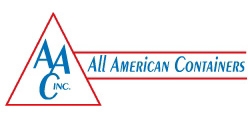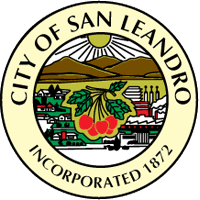San Leandro Industrial Space is in High Demand
By SLNext
In Uncategorized
Jul 26th, 2013
2 Comments
4649 Views
Highlights of recent industrial transactions in San Leandro include:
 In one of the largest real estate deals in the East Bay this year, Zinus Inc., the mattress and bedding distributor, took 116,000 square feet at 1951 Fairway Drive.
In one of the largest real estate deals in the East Bay this year, Zinus Inc., the mattress and bedding distributor, took 116,000 square feet at 1951 Fairway Drive.- Environmental Sampling Supply is moving to 640 143rd Avenue from a location in West Oakland. ESS supplies glass
 and plastic bottles, jars, and vials to the environmental industry for use in sampling water, wastewater and soil for hazardous content. ESS will bring about 50 jobs to San Leandro.
and plastic bottles, jars, and vials to the environmental industry for use in sampling water, wastewater and soil for hazardous content. ESS will bring about 50 jobs to San Leandro.  All American Containers has decided to stay in San Leandro for its expansion, moving to 121,000 square feet at 2013 Farallon Drive, the former North Face building.
All American Containers has decided to stay in San Leandro for its expansion, moving to 121,000 square feet at 2013 Farallon Drive, the former North Face building.







So what does it mean in dollars and cents? How much money does the city get from this companies in an yearly basis vs. how much does it provide to them on services?
It would also be helpful if when you told us about companies, you let us know how many people they employ at their San Leandro location and what the median wage they pay is.
Maybe all this information is clear to others, but I’m personally curious as to how having any particular company benefits (or not) the city.
When a new business comes to town, we generally don’t have enough data to derive precise estimates right away. Businesses don’t need to report employment until they take out a business license, and they don’t ever need to disclose wages to the City.
In the cases of the businesses listed above, these are leases rather than property purchases, so they won’t have a major impact on property tax in the short term since assessed values are based on Prop 13. Longer term, however, a thriving industrial area with low vacancy rates will lead to higher property values and more revenue for the City. Investment in industrial areas also comes with a significant multiplier effect, meaning that these businesses will generate additional spending and employment (purchases from their supply chains, employees spending money in town, etc.). The direct impact of the taxes paid by the business don’t always reveal the full fiscal impact.
In terms of cost of services, every property and business is obviously unique. Commercial and industrial development tend to cost less to serve than residential uses. The entire community benefits from public safety services, but nonresidential uses are less likely to make use of services like libraries and parks.